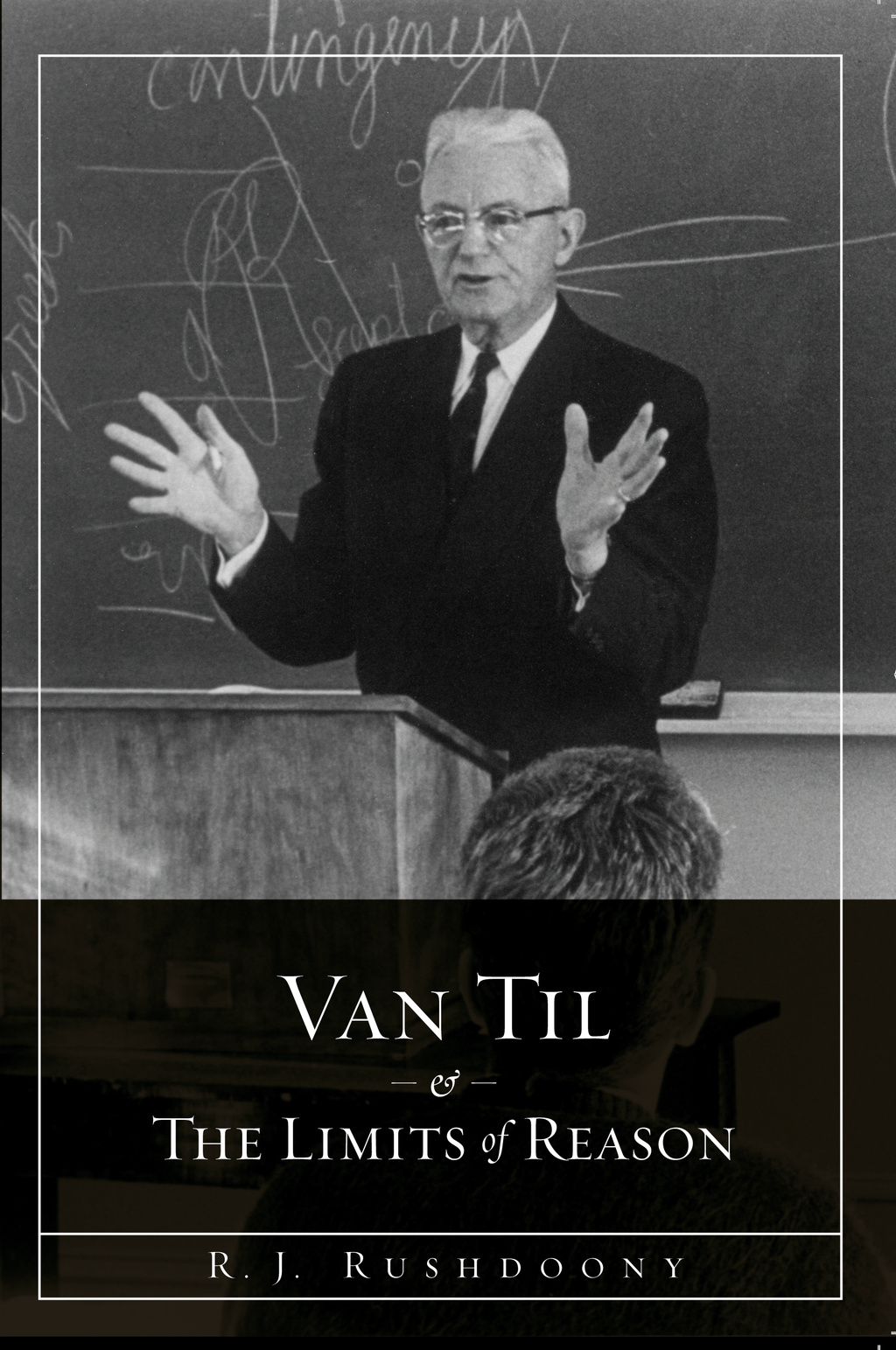
Van Til and the Limits of Reason
The essays of this volume were originally published as a tribute to the thought of Dr. Cornelius Van Til, highlighting his thesis that to see our reason as supreme repeats the sin of seeking to “be as gods” (Gen. 3:5).
eBook , Paperback

- R. J. Rushdoony,
The Enlightenment was an intellectual movement of the late seventeenth and eighteenth centuries that was a self-conscious move away from the Reformation’s emphasis on faith and revelation. It was the mind of man that became the new standard. “My own mind is my own church,” wrote Thomas Paine in his Age of Reason (Part First, 1794), which was an attack on all religion that claimed to be authoritative and Christianity in particular. It is not without case that Paine’s title is sometimes used as a synonym for the Enlightenment. Its rationalism saw faith as a blind confidence, a belief in nothing, while Hebrews 11:3 tells us it is “through faith we understand…” The Christian must see faith in God’s revelation as opening up understanding, as thinking God’s thoughts after Him, and rationalism as a restriction of thought to the narrow confines of human understanding. Reason is a gift of God, but we must not make more of it than it is. To see our reason as supreme is to see ourselves as supreme, and thereby repeat the sin of seeking to “be as gods” (Gen. 3:5).
The first three essays of this volume were published in a small booklet in 1960 as a tribute to the thought of Dr. Cornelius Van Til, titled Van Til. The last four essays were written some time later and are published here for the first time.

- R. J. Rushdoony
Rev. R.J. Rushdoony (1916–2001), was a leading theologian, church/state expert, and author of numerous works on the application of Biblical law to society. He started the Chalcedon Foundation in 1965. His Institutes of Biblical Law (1973) began the contemporary theonomy movement which posits the validity of Biblical law as God’s standard of obedience for all. He therefore saw God’s law as the basis of the modern Christian response to the cultural decline, one he attributed to the church’s false view of God’s law being opposed to His grace. This broad Christian response he described as “Christian Reconstruction.” He is credited with igniting the modern Christian school and homeschooling movements in the mid to late 20th century. He also traveled extensively lecturing and serving as an expert witness in numerous court cases regarding religious liberty. Many ministry and educational efforts that continue today, took their philosophical and Biblical roots from his lectures and books.